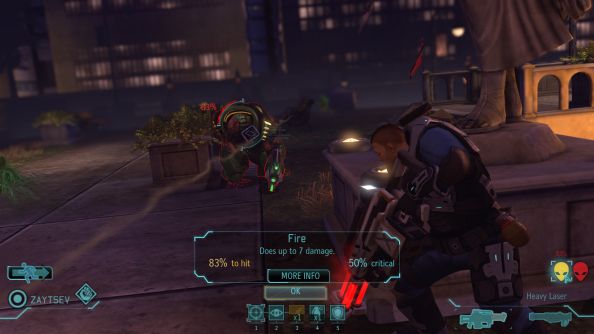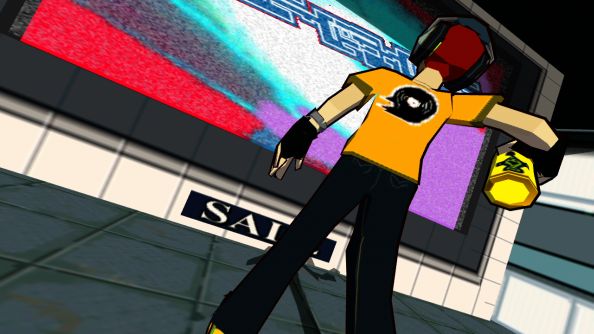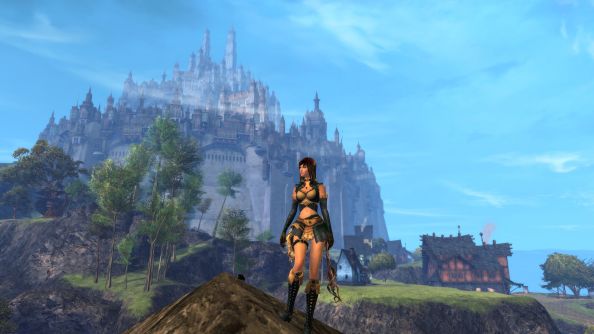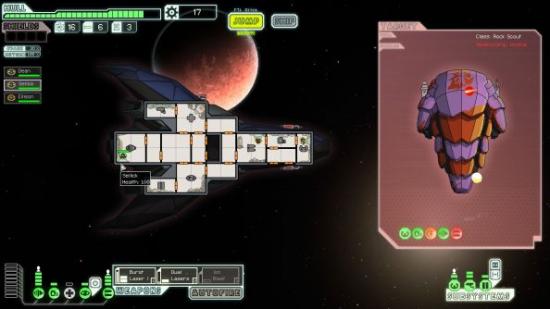The weekend: a window of opportunity to throw off the shackles of work, school and commitment to do nothing. Nothing but play. Here’s what the PCGamesN team are going to be dipping their fingers into this weekend. Warning: contains descriptions of games that may cause you to spend money.
Tim Edwards: FTL/Kerbal Space Program
I think my favourite kind of games are the ones that involve space in at least a minor way. Space is basically brilliant. So I’ve been oscillating between the beta version of Kerbal Space Program, in which you design rockets and launch tiny helpless men into orbit, and FTL, in which you control and space crew and launch tiny helpless space men and mantisses into the great unknown, while pursued by a relentless and implacable foe.
Both are brilliant for exactly the same reason: failure is frequently and brilliantly hilarious. My rockets in Kerbal never, ever reach the apogee or acceleration required to enter orbit, but it’s funny to try. They never even deliver their carton of space man meat successfully to earth either: despite me equipping every module with an appropriate parachute, they still hit the ground at gruesome speeds. So what: it’s fun to try.
In FTL, I’ve barely scratched the edge of the universe, before being chewed up interplanetary disaster. I’m still surprised when a set of baddies beam on board my space-ship. I’m still surprised when Notch (and for some reason, Notch is always in my game) is the last man standing. And I’m still surprised by how fun it is to lose.
Space is fantastic. More space games, please.

Rob Zacny: XCOM andF1 2012
When Firaxis get a chance to work on something besides Civilization, I’m reminded of just how good a studio they really are. Sid Meier’s Gettysburg is a brilliant wargame that changed the genre, and laid some groundwork the Total War series. Pirates is a pure delight, succeeding as a trading game, a swashbuckler, and a even a light naval wargame. Alpha Centauri is one of gaming’s greatest works of sci-fi. So I’ve always been a bit sad that Firaxis sometimes seem chained to Civilization..
With XCOM, Firaxis have been let off their leash and once again demonstrate that they are a premier development studio, not just a Civilization studio. There will be lots more to say about XCOM in the coming weeks, but for now, I’ll just admit that the one thing I really doubted was whether Firaxis could reproduce the intensity and menace of the original. Having spent some time with XCOM, sending my troopers forward into shadow-shrouded streets and alien spacecraft, losing them to sudden ambushes, or banking everything on a last-second sniper shot, those fears have been put to rest.
Besides XCOM, I’ve spent most of the week getting acquainted with Codemasters’ F1 2012. I’m not quite sure what to say yet. Perhaps I’ve gotten better in the last year of playing F1 2011 and Project CARS, but I’m finding the Formula 1 cars of 2012 easier to handle than ever before. That may not be a good thing. I miss their wildness and danger.
Or it could be that my initial drive, the comically awful Marussia, simply has more in common with my Mazda sedan than it does a proper race car. Once I get a chance to drive something from McLaren, I’ll let you know how it feels.
Still, I should just be grateful there is a cockpit view.
Julian Benson: FTL
From the first failed flight of the Heart of Gold I’ve been hooked to FTL.
I’d become foolhardy. Having reached the fifth sector on my first attempt, I jumped into a nebula I could have avoided, thinking my racks of multilasers would be able to turn anything its sensor-blocking space clouds could be hiding into pieces of burning metal. I emerged into a storm that reduced my power output to almost nil.
Forced to turn off my shields to power a measly two lasers, my once mighty vessel was disintegrated in minutes as the Engi ship blasted holes through my hull with rockets.
Restarting immediately, the Starship Bistromat did worse than my first attempt. Restarting again, this time as the Starship Titanic, well, I asked for that one: I didn’t leave the first sector. Each time learning new lessons, becoming a better captain.
I’ve sunk all my available time into FTL since it launched, even unavailable time, but it’s all been well spent.

Phill Cameron: Jet Set Radio
It doesn’t matter that’s it’s a little jagged around the edges, or that the actual game isn’t all that varied, just a rinse repeat of tagging sites and grinding anything with a bannister. It’s that it all looks so absolutely fantastic while you’re doing it. Jet Set Radio has been brought to the PC in HD by SEGA, and it’s just as vibrant and utterly stylish as it was twelve years ago.
You’re a punk with a spraycan and a pair of skates, and pretty much the entire game is sticking it to the man to funky beats by painting street art in hard to reach places, aided by the wheels on your feet and some rad mid-air tricks.
What’s so incredible about all of it is how it feels like an indie game, like this has been some guy in his bedroom making something completely insane in his spare time. Everything from the insanity of the core idea, to the way that it looks screams that risk-happy brilliance of the indie scene at the moment, and it’s both really encouraging and completely odd to find it in a twelve year old game.
It either means that Jet Set Radio was incredibly forward looking, a particular kind of different or that the indie scene is harkening back to that time, twelve years ago, when everything had a little more colour. In the week that Borderlands 2 was released, it’s also interesting to see the comparison between the cel shading of yesteryear and the bleeding edge of today. Borderlands 2 is clearly vastly outperforming, but it’s amazing to see quite how much a strong art style can carry a game through a decade without losing much in the process.
Steve Hogarty: FTL / Torchlight 2
If I were an American man, I could say I’d been playing Borderlands 2 all week. I could say it in my big friendly American accent, and then go to a prom or a rodeo or a barbeque in a parking lot (car park) or whatever happens in America. But I am a European, and I’ve been madeto wait until today to play it.
So instead, I’ve been playing a whole lot of FTL and a little of Torchlight 2. In fact I’ve played so many games of FTL, seemingly without learning how to succeed, that the events, weapons and ship configurations have started to repeat and the opening sectors are starting to grind. I lay that blame at my own airlock, though, for having caned the little indie space adventure so ruthlessly.
On the other hand, I’m still honeymooning with Torchlight 2, a game that does an incredible job (at least early on) of never showing you the same thing twice. I’ve spied the skillset I want to pursue now, which removes some of the sense of worrying indecision I tend to get each time I’m given skill points to spend. Suddenly I’m feeling more focused and finding the fun in the class I’ve chosen, all while falling more and more in love with my tiny dog friend.
This weekend needs to be about four or five times longer.
Paul Dean: FTL
Yep, me too. In the past seven days, absolutely everyone I know has been playing this. The very moment I finished work on Friday I started it up and I immediately fell in love. But it’s been a rocky relationship ever since.
I really, really like FTL’s aesthetic. I like the idea of the game and I like what it’s trying to aim for. I’m also known for my love of roguelikes and procedural generation, but I’m not sure I like how FTL makes use of all of it.
A lot of roguelikes are about choice. Considered choice, the balancing of risks before taking a gamble. The thing with FTL is you spend much more of the game reacting than you do choosing. You turn up somewhere and something happens that you respond to. You rarely know what’s ahead of you, what’s coming next, and it’s only once you’re in a situation that you’re really able to exercise control, and sometimes it can already be too late.
All these things are very, very random, as is the placement of shops, the items you find, the weapon configuration of your opponents. I’ve found it very easy to end up with either very overpowered or very underpowered ships, all largely by chance rather than skill. While Spelunky, my favourite game of last week, is about presenting you with options and making you test your luck, FTL repeatedly asks you to react to something it’s pulled out of a hat. The reacting is fun, sure, but it’s repeatedly unfair.
But I still like it.

Jeremy Peel: Guild Wars 2
Concept artists are the dreamers of game development. “Here,” they say, thrusting swathes of parchment into the paws of hapless code monkeys. “Here’s my Kubla Khan. It came to me in the bath.”
Ever since games became something developers conceived of rather than just did, those same poor code monkeys have been hacking away at those fever dreams, sanding away their features and cutting off their limbs – committing quiet atrocities in order to shunt them down the tiny technological tubes of whatever it was people had in their PCs at home at the time. Somehow, every one of these Xanadus became polygons with six corners and one texture, which was brown.
Guild Wars 2 is the first game I have ever played that looks like its concept art, and the experience is uncanny. I’m playing as a human mesmer, which is proving to be great fun. I’ll clone myself two or three times every battle, and as another Centaur falls into dust, every one of me will find our eyes drawn up to the spectre ofDivinity’s Reach.
It’s an audacious wedding cake of a city. Hundreds of spires fight for prominence in the skyline, atop walls unfeasible high and with a touch of military practicality about them. It’s as if Medieval-era London Bridge never collapsed, and – like humans do – everybody just kept building up, and up, and up…
I haven’t even set foot in the place yet. But I know I will – it demands to be explored.
